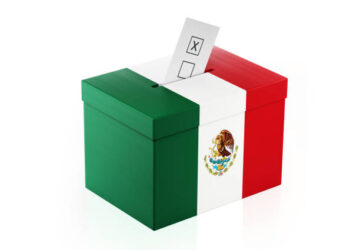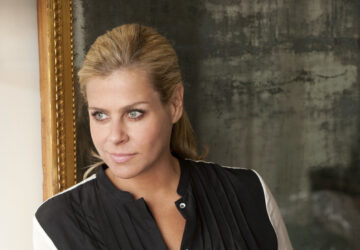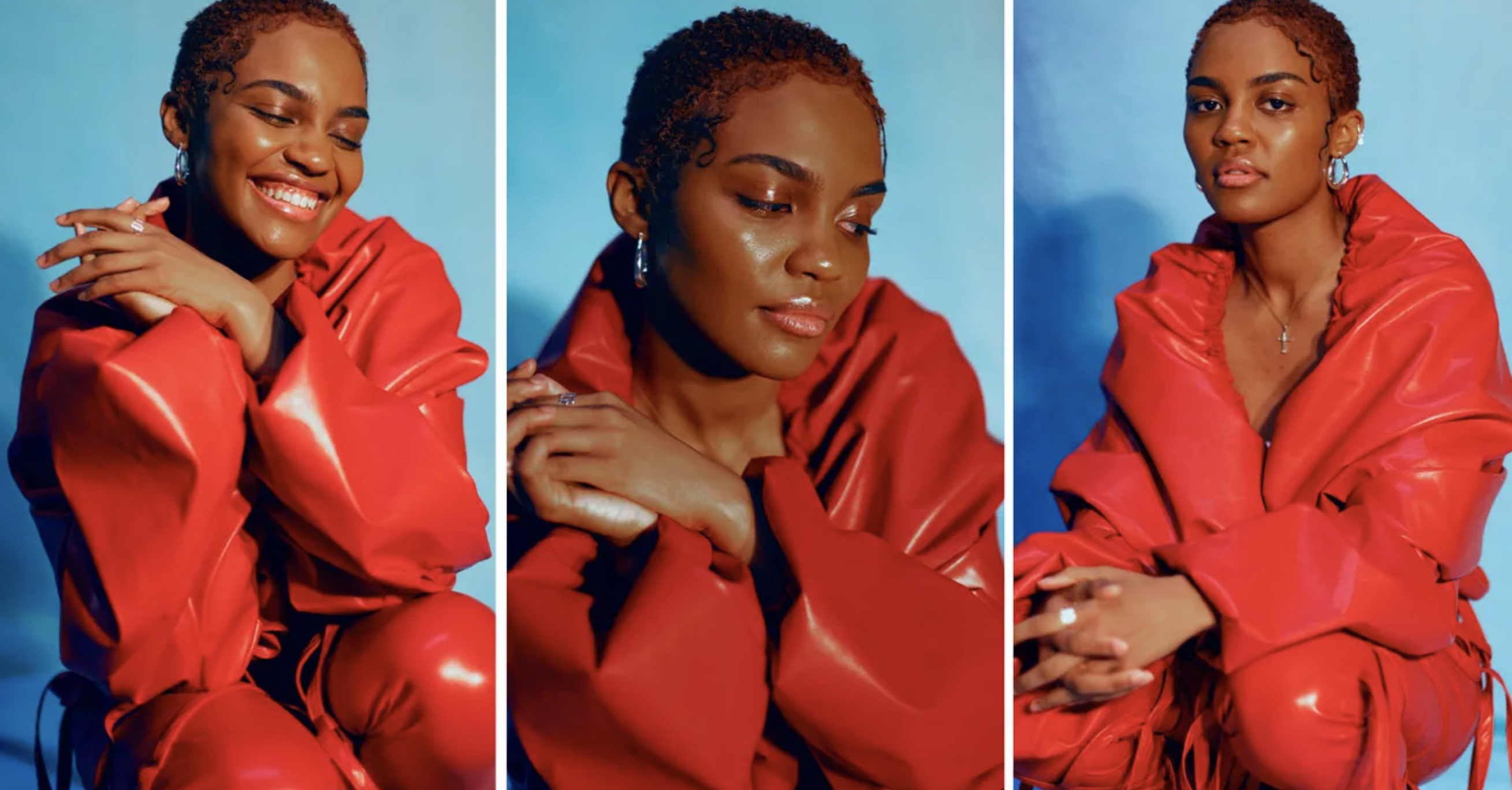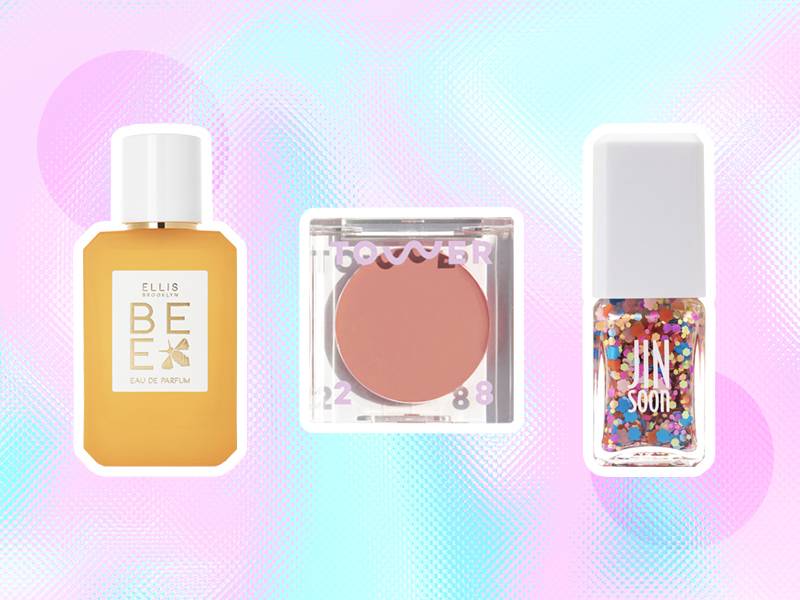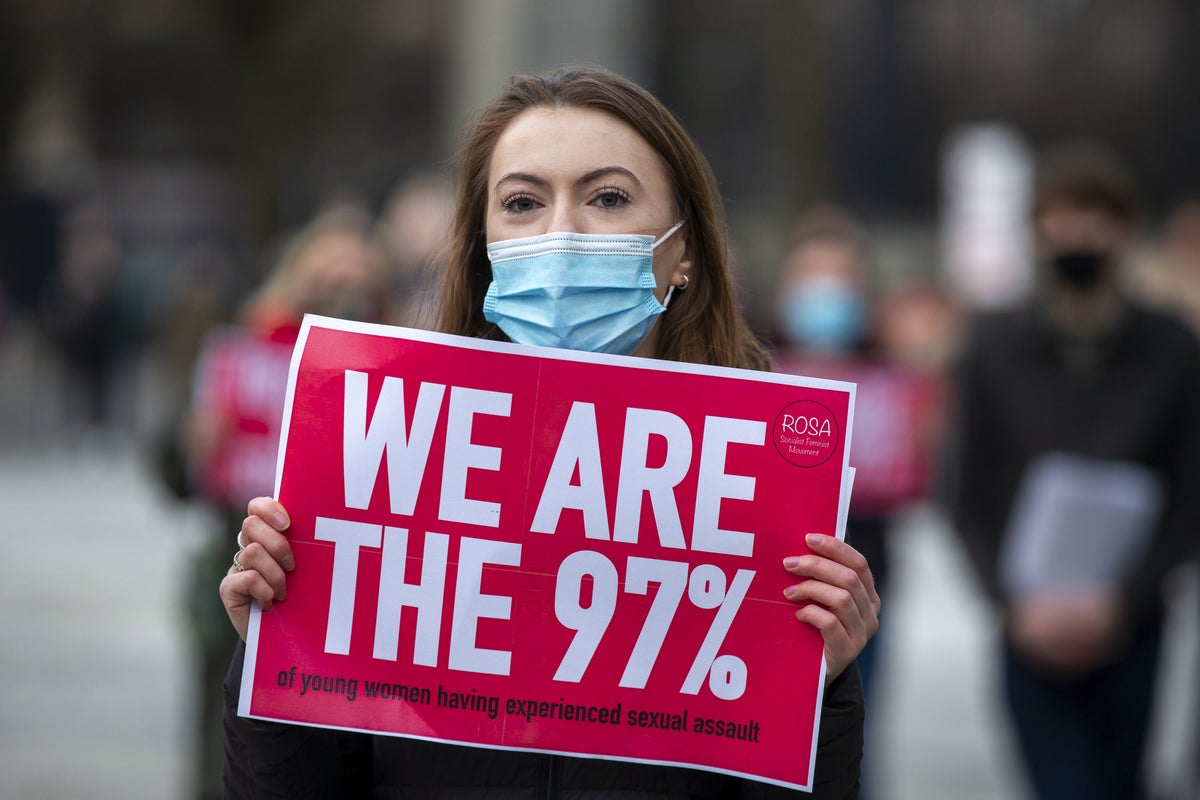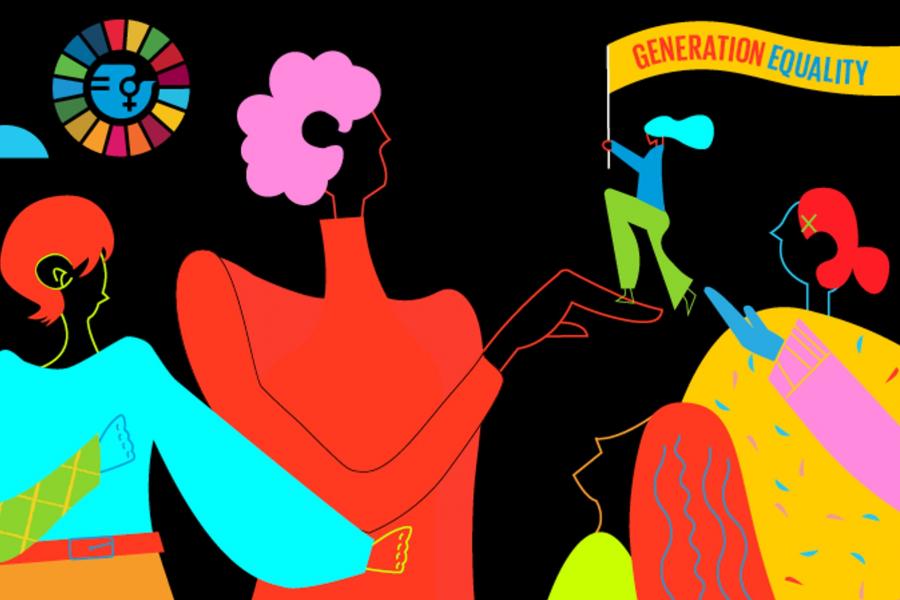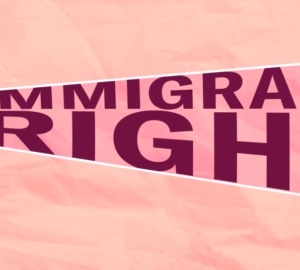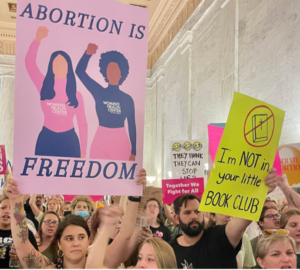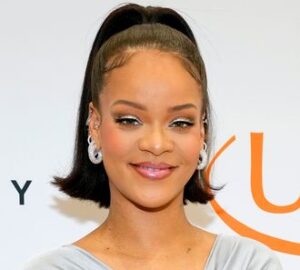China Anne McClain Recounts Loss, 12 Asian-Owned Beauty Brands To Support, Not All Men but All Women, & Hate Against Women
China Anne McClain Recounts Loss, Finder her Identity, and “Black Lighting”
By Natasha Gilman
The two widely known actors China Anne McClain and Cameron Boyce first worked together on the set of Grown Ups. Since then, the pair fostered a fantastic friendship. The two later starred in the film series Descendents, where they further developed their relationship and became each other’s “family”. In July of 2019, Cameron Boyce tragically passed away from a fatal seizure, forcing China to deal with immense grief for the passing of her best friend.
Now, China expressed her own personal growth and development, as she evolved from being insecure and is developing into her best self, all while struggling with grief. China has started portraying a more positive and happy version of herself on the CW’s “Black Lightning” and her personal TikTok. This change to her lifestyle was inspired and propelled by her decision to chop all of her hair off.
During her adolescence, China utilized her long hair as a sense of security, often hiding her acne and her insecurities behind her long locks. After making this life-changing decision, China notes that her hair was holding her back in many ways, noting, “it was holding me back, I felt, in a lot of ways, emotionally, spiritually”.
China made her debut of her new look at the San Diego Comic-Con in the Summer of 2019, soon after Cameron’s passing. At this incredibly public event, she struggled to navigate while still deeply mourning Cameron’s passing. China continues to highlight the lasting impact Cameron has had on her life.
China Anne McClain says that the biggest lesson Cameron taught was to let go; this message helped China through the lifestyle of the film industry, as she often struggles to find her true identity. Prior to Cameron’s death, China’s life was driven by her accomplishments and work. After his passing, she has learned to take a step back and focus more on herself and her own growth. She notes this personal development, saying, “I just focus on the things around me and focus on this moment and put it on God and my family and whatever happens with the industry happens”.
China also experienced a religious awakening when she received a sign from God that it was time for her to leave her show Black Lightning. Shortly after, it was announced that the show would be ending. Her personal reliance and connection with God have opened a new sphere of her identity that she is proud to share with the world. Overall, China Anne McClain has experienced immense personal growth after the death of her close friend, Cameron Boyce.
12 Asian-Owned Beauty Brands To Support Now And Forever
Khushi Bhatt
The beauty industry is ever-changing but if we take a look deeper we see that its roots have always been planted in holistic medicine from ancient China or homeopathy in India. In this article, we talk about the best Asian-owned beauty brands to support that have given so much to shaping and molding the beauty industry as we know it today. With the spike in violence toward the AAPI community and long-time racism that has been prevalent in this industry—we are taking a moment to celebrate and support Asian beauty businesses and brand owners. From brands who have stimulated innovation in the skincare space to influencers-turned-founders who have totally changed the way we experience beauty, read on for some of our top picks, ahead.
- Savor beauty
- Savor Beauty’s Angela Jia Kim was inspired to start her line by Korean beauty rituals she’d do with her mom—like using creams that were swirled with gold and silkworm cocoons. These experiences informed a line of products with luxurious ingredients and spas that leave you with mul-gwang (a.k.a. a juicy, healthy-looking glow).
- CTZN Cosmetics
- Diversity is at the forefront of CTZN Cosmetics—a line founded by sisters Aleena, Aleezeh, and Naseeha Khan. Their collection includes robust shade ranges and high-impact formulations.
- SUPEREGG
- Superegg is the brainchild of influencer and design aficionado Erica Choi, who created the line to share a taste of her Korean upbringing. “Memories from my upbringing are one of the pillars of Superegg,” she says. “Eggs were widely known for their nutritional values in my culture and were often used as part of self and familial beauty rituals. I’ve grown up observing my grandmother and mother apply different parts of the eggs onto their faces as self-care rituals at intimate family gatherings at home or during trips to the Jjimjilbang (a.k.a the neighborhood Korean sauna).”
- Good light beauty
- Good Light Beauty was founded by David Yi—SK influencer and author of Pretty Boys. It was inspired by his Korean-American heritage and built on the idea that beauty is non-binary. “Feeling othered and as if I did not belong at a young age was the impetus for my advocacy journey and the inspiration behind Good Light,” he says. “I know what it’s like to feel alone—and Good Light is here to ensure that everyone is able to shine their light. Every person deserves to know their power.”
- Tatcha
- Founded by Vicky Tsai, Tatcha is expansive skincare and makeup line inspired by modern takes on age-old Japanese beauty rituals.
- Glow recipe
- Founders Christine Chang and Sarah Lee designed the K-Beauty-inspired Glow Recipe to be both grid-worthy and good for your skin. The line is expansive with fruit-themed cleansers, serums, moisturizers, and masks that smell as good as they make your complexion look.
Not All Men but All Women: Study finds that 97% of Women in The U.K. Have Experienced Sexual Harassment
By Marin Yearley
If you have spent any time on social media lately, it is likely that you have stumbled upon a hashtag, post, or comment referencing “the 97 percent statistic,” accompanied by stories of women’s personal experiences with sexual harassment and misconduct. This recent outpouring of awareness was sparked by the death of 33-year-old U.K. citizen, Sarah Everard, who was murdered while walking home from her friend’s house in what authorities have called a “sexually-fueled crime.” In response, the media has turned its attention to the results of a particularly jarring study conducted in the U.K. by the All-Party Parliamentary Group for UN women which found that out of the 1000 women surveyed, only 3% had not experienced any kind of sexual harassment. This eye-opening statistic has finally brought attention to the underlying issues of gender inequality and women’s safety that pervade society; however, it has also sparked considerable controversy.
One source of objection to the “97 percent” trend emerged on teen social media site,Tik Tok, where many male users have begun spreading the hashtag “#NotAllMen.” Others have questioned the accuracy of the statistic itself, dismissing the study as an exaggeration despite the reality of the problem it represents. Even if the number 97 percent was an overestimation of the situation, why is that what people choose to focus on? Wouldn’t 75, 50, or any percent still be too much? These defensive responses illustrate the flaws in our society’s approach to conversations about women’s issues. Instead of addressing it, messages like the hashtag “#NotAllMen” divert the spotlight from the rampant problem of sexual harassment, twisting the narrative to victimize men and creating an environment that discourages women to speak up.
Of course, there is no simple solution to these long standing issues; however, if we change the way we talk about them, we can begin to dismantle the climate that silences women’s voices. As Sophie Rainbow discusses in her article “Men aren’t even a part of it’: Why we need to change the way we talk about gendered violence”: “Sarah Everard should not be remembered as a number. We should share her story and the stories of so many others by using our language more thoughtfully – so that we can start shaping a discourse that does not flatten the role of women, that points the finger where it must be pointed, and that gives us more power to bring an end to such horrifying stories.” Rainbows point emphasizes just how harmful responses like the “#NotAllMen” hashtag can be for women’s causes.
Despite the grim reality the 97 percent statistic presents, the recognition it has garnered in the media provides some hope for the future by reopening the discussion about sexual harassment. However, even after the initial shock of this study wears off, we must continue to raise awareness, hold men accountable, and elevate women’s voices in order to enact real change.
Hate Against Women
By Chloe Robinson
It’s true that women have faced frequent discrimination for centuries, yet is this enough to classify misogyny as a hate crime?
Experts say, maybe. The stories of Sarah Everard, a woman murdered in London, and Soon Chung Park, Hyun Jung Grant, Suncha Kim, Yong Ae Yue, Delaina Ashley Yaun, Xiaojie Tan, and Daoyou Feng, victims of the heinous shooting in Atlanta, demonstrate that misogyny seems to fuel violence and hate. While the stories of Everard and the eight women in Atlanta vary in detail, one thing is the same: a hatred towards women.
The attack at a massage parlor in Atlanta was towards eight women, seven of them Asian, which led to the attack being speculated as racially motivated. Sarah Everard was walking home alone one night and fell victim to a police officer who kidnapped and murdered her.
Following Everard’s death, people worldwide called for deeper change, and the British government consequently announced that “cases of gender-based violence and harassment motivated by misogyny” would be considered as hate crimes, experimentally.
As the parliament discussed the new policy, Baroness Helena Kennedy, a member of the House of Lords, said, “Across the country, women everywhere are looking to us not just to express sympathy with their concerns, but to act. Stop telling them to stay at home and be careful, and start finding those responsible for the violence.”
The shooter in Atlanta told police that he had a “sexual addiction” as an attempt to justify the heinous crime, urging activists to suggest he should be charged with a hate crime as well.
Scott McCoy, interim deputy legal director for L.G.B.T.Q. rights and special litigation at the Southern Poverty Law Center, told CNN, “What can’t be forgotten is the hate crime statute says ‘because of gender’ as well.”
Women worldwide have been sharing similar stories of mistreatment based on gender. Social media has become an outlet for women to discuss situations that could’ve escalated and turned as violent as the aforementioned murders. According to the New York Times, women discussed the things that they have done, like Everard, to protect themselves, including “walking on well-lit streets, and talking on the phone or clutching their keys in their pockets while doing so — and described how they still ended up in dangerous situations.”
Asian women, specifically, responded to the Atlanta shooting, and spoke of all of the ways in which sexism and racism intersect, forcing them to be victims of a new, and violent, form of harassment.
Sexual harassment and assault have become too common for women globally. A report by W.H.O explains that “one in three women around the world has been subjected to physical or sexual violence by an intimate partner, a family member, a friend, an acquaintance or a stranger.”
Because women are so petrified to speak out in fear of being silenced or retaliated against, the data regarding sexual harassment is innaccurate in part. With this in mind, the statistic 81 percent of women had experienced some kind of sexual harassment during their lifetimes is terrifying. 97 percent of women aged 18 to 24 in the United Kingdom also said they had been sexually harassed.
“We need to get better at sweating the small stuff,” said Caroline Criado Perez, author of “Invisible Women: Exposing Data Bias in a World Designed for Men.” Perez suggests that public transport staff are trained to better handle harassment complaints since so much of the harassment that women face happens on public transport.
Evidence suggests that gender-based violence is connected to broader threats, being a reliable indicator of “terrorism and conflict,” according to a 2015 United Nations report. A spike in gender-based violence is associated with “rising levels of insecurity in society more broadly.”
The question of “Is it a hate crime?” continues to be debated. Many speculate that deeming misogyny and gender-based violence as a hate crime would “refocus accountability and publicly stigmatize that behavior to encourage a broader cultural shift.”
Steve Freeman, Vice President of civil rights at the Anti-Defamation League noted that, “It is important for the message that it sends and how that message plays in the community, how you talk about it, how you have police understand it.” Freeman also suggested that it is hard to prove that a crime towards a woman was committed because of gender.
Laura Bates, author of “Men Who Hate Women,” notes that “categorizing misogyny as a hate crime shouldn’t be seen ‘as a silver bullet’ because ‘we’re still asking women to trust the police with their stories.’”
Categorizing misogyny as a hate crime was first attempted in Nottinghamshire in 2016. “Some of the feedback we had was that women, for the first time, described themselves as walking taller and with their ‘heads held high,’” Sue Fish, then police chief of Nottinghamshire, said in a recent interview.
Others felt differently, with one respondent saying that “Countless times I’ve had this done to me before, so what’s the point of me going to the police station and sitting there for two hours with a policeman who probably just thinks, ‘Why are you wasting my time?’”
